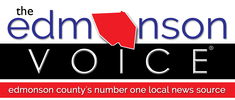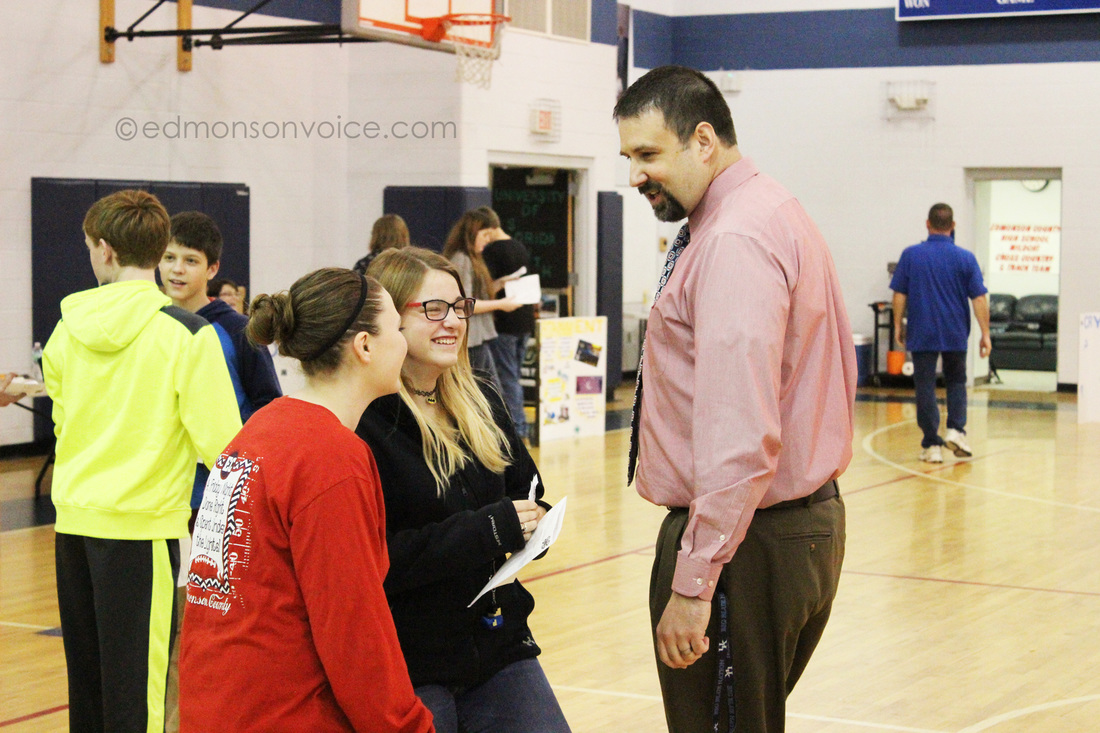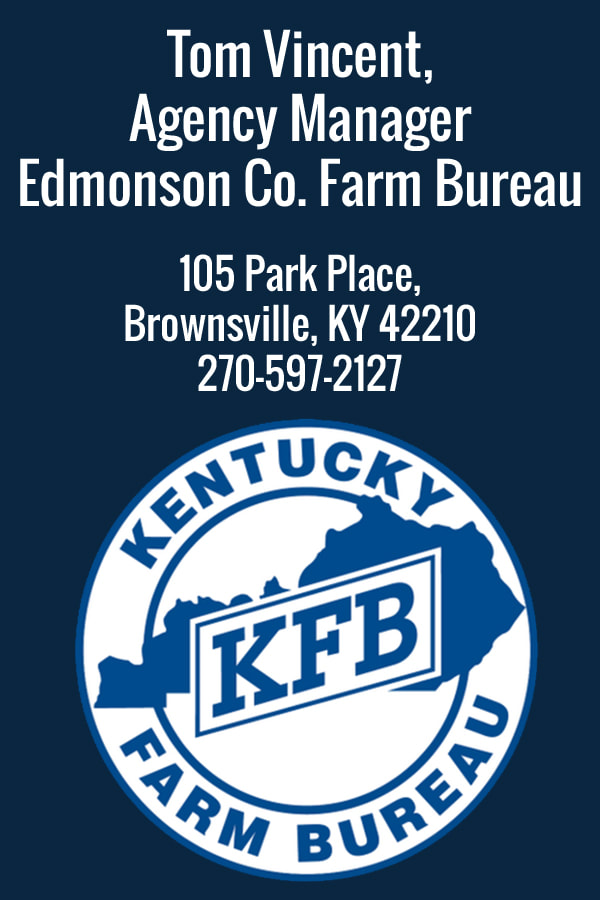|
Darren Doyle, story and photos Eighth graders at the Edmonson County Middle School got a reality check today at the school's annual "Reality Store," hosted by ECMS, the Family Resource/Youth Service Centers, Community Education, and the county Extension Agent. The program, which has been running in the county for the last 15 years, teaches students what it's like to follow a family budget. Each student is presented their "situation," which randomly lists their yearly salary, monthly income, and family status. The students then visit different booths at the "store" where they have to pay taxes, purchase housing, transportation, insurance, healthcare, childcare, and more. ECMS Principal Brandon Prunty smiled as he described how surprised most students are when they are making family budget decisions. "Most kids don't understand what money comes in and then how much has to go out," he said. "This helps open their eyes and shows them that it takes a lot of money to live. It reminds them the importance of education to help them get good jobs and careers." David Embrey, County Extension Agent For A&R with 4-H Responsibilities, said it gives the students a real, hand-on experience for what things are like in the real world. "It has a real impact," he said. "I heard one girl say she was going to go home and apologize to her mother because she didn't realize things were so expensive." Lisa Whobery, Community Education Director, said the real life situations are the reasons they focus so much on education. She said many students "ran out of money" in their purchases, and weren't able to make ends meet. "This is why we stress doing well in school, going on to college and securing those good paying jobs, so that when they are in these positions in real life, they'll have the money they need." Whobrey said that everyone participating in the event were volunteers. Local businesses and entities were set up at 18 different booths, with over 30 volunteers helping out.
Embrey agreed that there's more to school than just the subjects and the grades. "Of course those things are important, but programs like this help students learn what to do with that knowledge after they learn it," he said. Upon arrival of the "Reality Store," students first had to visit "Uncle Sam," in order to pay taxes. After that, they set up a "checking account" and made their way around the different booths to make their 'real life' purchases. If a student ran out of money, they had to make their way to a special services booth that offered assistance with clothing, food, etc. The plan was for students to be able to make their necessary purchases and still have money left, and to be happy with the quality of those purchases. Principal Prunty was seen talking to different students, looking over their finances and checking on their statuses. All students seemed to be enjoying the scenarios, and each kid seemed to be engaged in all the booths. "We're trying to put these kids in situations where they think about where they'll end up down the road," Prunty said.
0 Comments
Your comment will be posted after it is approved.
Leave a Reply. |
Archives
April 2024
|
|
Copyright 2014-2024 The Edmonson Voice.
The Edmonson Voice logos are registered trademarks. Call or text: 270-597-6550 editor@edmonsonvoice.com PO BOX 94 BROWNSVILLE, KY 42210 CLICK HERE FOR DEADLINE INFO |








